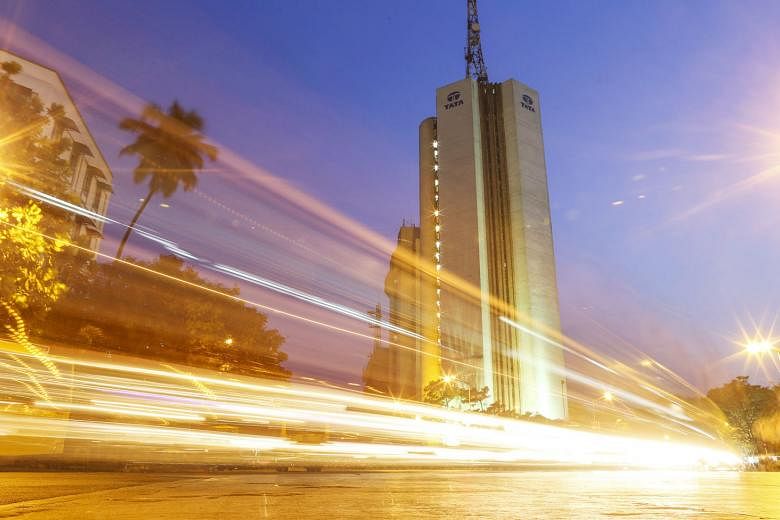Dr Angela Merkel, Mr Xi Jinping, Mr Shinzo Abe and other leaders have added the expression to their lexicons. It seemed to blanket the Davos World Economic Forum this year like a blizzard. Evidence of a "multipolar world" continues to accumulate as governments around the globe scramble to understand how the West's weakening leadership (most recently expressed with the US' withdrawal from the Paris Accord) combined with emerging markets' growing economic strength will redefine this new global order.
Many businesses with operations across the globe should not be surprised, because they have been working in a multipolar world for years.
That's good news. The bad news is that few, if any, have figured it out, and if businesses are any indicator, the geopolitical world may be in for similar trials. For now, organisations with global footprints have a lot they can teach about surviving in a multipolar world.
How did the business world get here first? Over the last few decades, many of the so-called "emerging markets" became the destination of choice to expand business. Capital surged and growth took off.
But then something happened.
As these countries emerged, so too did their confidence. Far from falling into a global homogenising melting pot, as many predicted, the opposite occurred. Yes, the planet has become more interconnected but regions could now call their own shots, making localisation a must. Maturing markets know what they want and how they want it, which means that to do business globally is to face a flurry of new local complexities.
Companies respond to this paradox by transferring authority to geographic areas where headquarters' control weakens. But this transition is usually messy because while power is redistributed, it is by no means redistributed equally, which increases uncertainty.

How do decisions flow across an organisation where a traditional hierarchy has been disrupted? How will they flow across a multipolar world? Once power transitions to various regions, how does an organisation maintain a core level of consistency, vision and values while being flexible, and responsive to local markets? When push comes to shove, will HQ still get its way?
The phrase G Zero (adapted from the names of the G-7 and G-20 coalitions) was coined by Dr Ian Bremmer, president of the Eurasia Group, a leading political risk research and consulting firm, when he warned of repercussions from the US' global pullback. Distributed power without an agreed-upon strategy can quickly melt away.
That is precisely what happens with global companies. And that is the irony of a multipolar world - if everyone is in charge does that mean no one is?
New market realities require new approaches but change often comes glacially. Multinationals know that collaboration is now more important than ever. Unfortunately, this is easier said than done. New technologies claim to solve these challenges but they do not address the underlying obstacles of human nature.
It takes more than a video conference or chat tool between offices to move beyond differing cultural and communication styles and "us versus them" thinking. Mistrust can reinforce frosty relationships between offices, teams and capitols.
For example, some organisations now question the very need for a headquarters. Managing director and CEO of Tata Communications, Mr Vinod Kumar, considers the concept of having a headquarters for his company "meaningless". Mr Kumar has taken an especially innovative approach by removing a number of traditional structures, creating an environment where collaboration becomes essential to survive.
With varying communication styles across numerous time zones, collaboration within global teams does not grow naturally, nor does technology alone solve the issue. Rebuilding collaboration involves new approaches to core skills such as negotiation. This isn't about achieving a zero sum - I win/you lose - scenario, it is about trading concessions and, most importantly, understanding the position of the person across the table, no matter how geographically dispersed the table.
Good negotiation is what happens when collaboration meets a deadline.
Working with teams located across multiple time zones is difficult. Some have streamlined this but still admit they have not cracked the code on how to regain a full night's sleep. Members of Mr Kumar's team at Tata Communications acknowledged that a headquarter-less business has increased the number of around-the-clock calls and meetings.
It is unclear if the world is entering a truly multipolar geopolitical era, but global organisations have long wrestled with these types of shifting power structures. Even those companies which acknowledge their multipolar existence, struggle with the challenges of balancing traditional business assumptions with how they have to adapt across diverse markets. Is the planet ready to collaborate?
Companies and countries that warm to this changing landscape will thrive while others will be left out in the cold. Innovative ideas will be needed to drive these changes, and who knows, maybe we will all once again figure out how to get a full night's sleep.
- The writer is managing director of TSL Marketing Singapore, where he focuses on helping companies expand across APAC and the globe.

